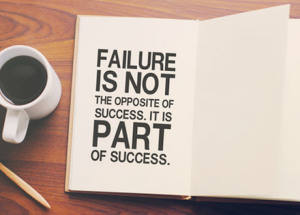The post If not a Business Plan, then what? appeared first on Conor Foley.
]]>“That depends a good deal on where you want to get to.”
“I don’t much care where –”
“Then it doesn’t matter which way you go.” (Lewis Carroll, Alice in Wonderland)
Conventional wisdom argues that every company, whether that be a start-up or a mature business, should have a Business Plan, unless, of course, like Lewis Carroll’s character, you don’t much care where you want the business to get to.
An alternative view is emerging, nicely summed up in this article on Inc.com, which claims that the ‘secret to a great business plan is not to write one.’ The author, Geoffrey James, gives 3 reasons for not writing a business plan:
1. Trying to forecast 3 years into the future, let alone 5 years, for a start-up, and even for mature businesses, is a waste of time. Everything is changing so quickly that assumptions made today will be redundant in 12 months time.
2. Nobody has time to read a formal document.
3. Potential investors would view the time spent on writing a Business Plan as having a wrong sense of priority.
Instead, the author highlights what could be used as a replacement for a Business Plan by referencing some eminent experts in the field.
Guy Kawasaki would prefer to see a 10 slide, 20 minute presentation built around a prototype or product demonstration.
Henry Wong (founder of CNET, among others) recommends a similarly minimalist approach that hits five key points: 1) team, 2) market, 3) technology, 4) customers, and 5) special connections (people you know who can help).
Author and entrepreneur Chris Lipp says your pitch must communicate only four simple points: 1) problem, 2) solution, 3) market, and 4) business.
Stanford professor Eesley says that a successful pitch today can even be a “one pager” and recommends that the time is better spent doing something useful: such as making your idea work in the real world.
Personally, I believe every company should have a Business Plan, but critically, one that is ‘fit for purpose’. It needs to a living, breathing document that communicates the strategy to all stakeholders, especially employees and shareholders, and it must be used to measure the performance against the targets set. How else can you assess performance if you’ve no plan?!
Finally, there is one other approach that could be considered, also taken from Lewis Carroll’s Alice in Wonderland:
“Begin at the beginning,” the King said, very gravely, “and go on till you come to the end: then stop.”
Who needs The Lean Startup with that kind of advice?!
The post If not a Business Plan, then what? appeared first on Conor Foley.
]]>The post Failure is not as painful as you expect, according to Scientists appeared first on Conor Foley.
]]>However, there is good news for anyone trying to decide whether they should take the plunge or not. According to Jessica Stillman in this article on Inc.com, new research shows that people handle failure and embarrassment far better than they think they would.
Imagined failure is way worse than the real-life kind.
To come to this conclusion, a team of Dutch researchers told study subjects they were going to complete a series of tests in pairs, informing them that if they scored above a certain level, each pair would earn rewards. Half of the participants then predicted how bad they’d feel if they failed. The other half actually took the tests and, whatever their actual performance, were told that they were personally responsible for their team’s failure to earn the reward. How bad did they really feel, the researchers then asked them.
How good were the participants at guessing how bad failure would make them feel? In short, pretty terrible. Imagined failure apparently feels way worse than real-life failure.
“Forecasters overestimated how much guilt and shame they thought they would experience (as compared with the actual emotions reported by the experiencers)–this is a classic example of the intensity bias,” according to the British Psychological Society (BPS). What’s the intensity bias? “A recurring finding in psychology is that people tend to overestimate the strength of their future emotions,” explains BPS.
Failure might hurt a lot less than you think it will, but it still hurts!
Conor Foley
The post Failure is not as painful as you expect, according to Scientists appeared first on Conor Foley.
]]>
